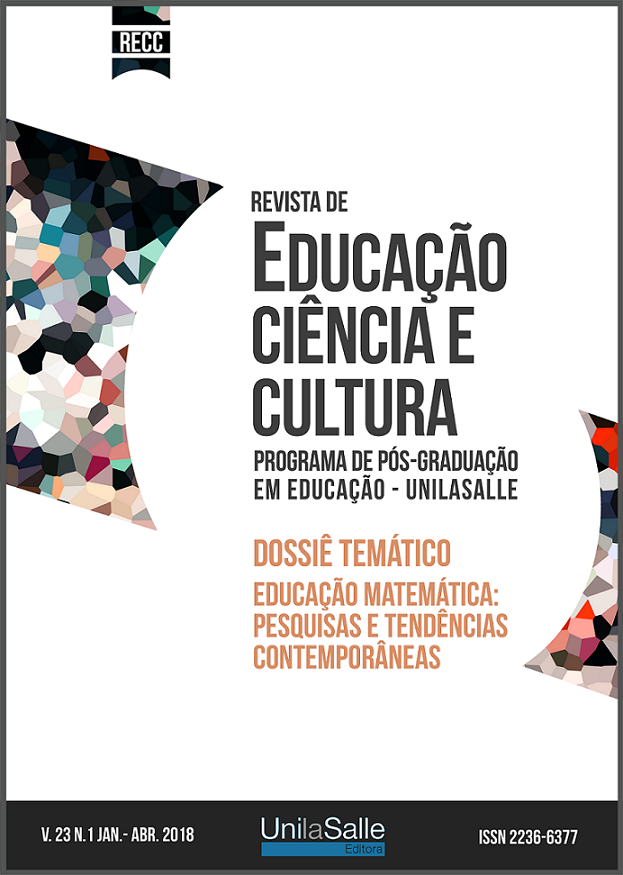The Wittgenstein’s pragmatic philosophical and the Mathematics Education
DOI:
https://doi.org/10.18316/recc.v23i1.4168Keywords:
Ludwig Wittgenstein, Language Games, Mathematics Education.Abstract
This article focuses the reading of Mathematical Education texts that use Wittgenstein’s philosophical pragmatics to support his works. The number of works that fit this characteristic is large and growing, and is, in our view, a trend within the scientific field. We have attempted in this reading to address the main reasons stated by the authors for the use of this philosophical approach in these works, it’s contributions and limitations, as well as, when appropriate, the discussion that was made by bringing other philosophers (or theories) together. In some way, we outline here some of the movements that we have seen in the field of Mathematics Education regarding these uses. Certainly, many works have been left out of this reading, we have tried to bring those who have effectively supported us in the discussions in the research group History of Mathematics Education in Research (HEMEP) and in specific disciplines on Wittgenstein and Mathematics Education, which are occurring semiannually since 2014 in the Graduate Program in Mathematics Education (PPGEdu Mat), Universidade Federal do Mato Grosso do Sul (UFMS). The works listed here focus mathematics classroom, mathematics in other environments, ethnomathematics, teacher training and on historiographic research in Mathematics Education based on the ideas of the second Wittgenstein. As for the interlocutions, some of these works bring us dialogues of this philosophical pragmatics with ideas of Romulo Lins, Jacques Derrida, and Michel Foucault. Finally, we bring some brief notes on this reading and some questions that this philosophical pragmatics bring to us.
Downloads
Published
Issue
Section
License
Authors must submit their manuscripts to be published in this journal agree with the following terms:Authors maintain the copy rights and concede to the journal the right of first publication, with the paper simultaneously licensed under the License Creative Commons attribution that permits the sharing of the paper with recognition of authorship and initial publication in this journal.
Since the articles are presented in this journal of public access, they are of free use, with their own attributions for educational and non-commercial purposes.
The Periodic Journal of Education, Science and Culture in http://www.revistas.unilasalle.edu.br/index.php/Educacao was licensed with a Creative Commons - Attribution - Noncommercial 3.0 Not Adapted.


